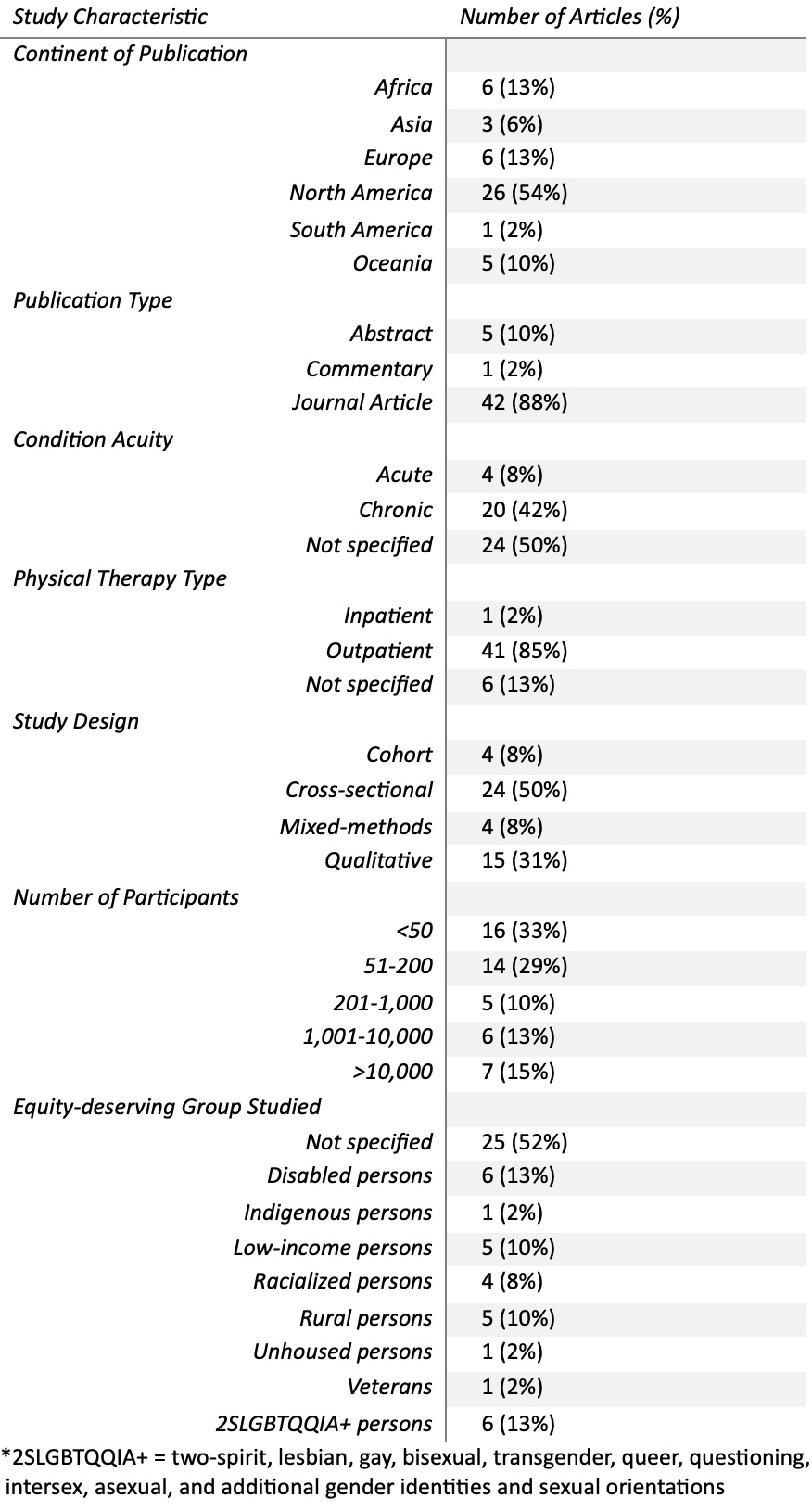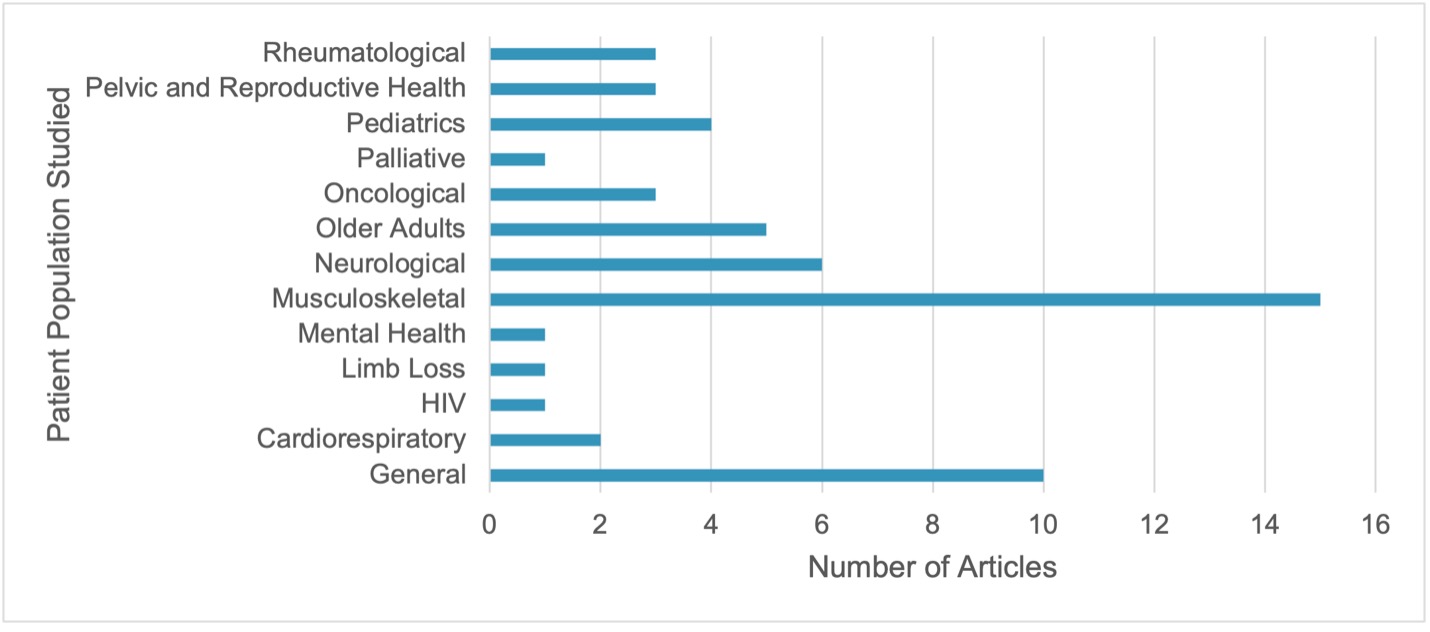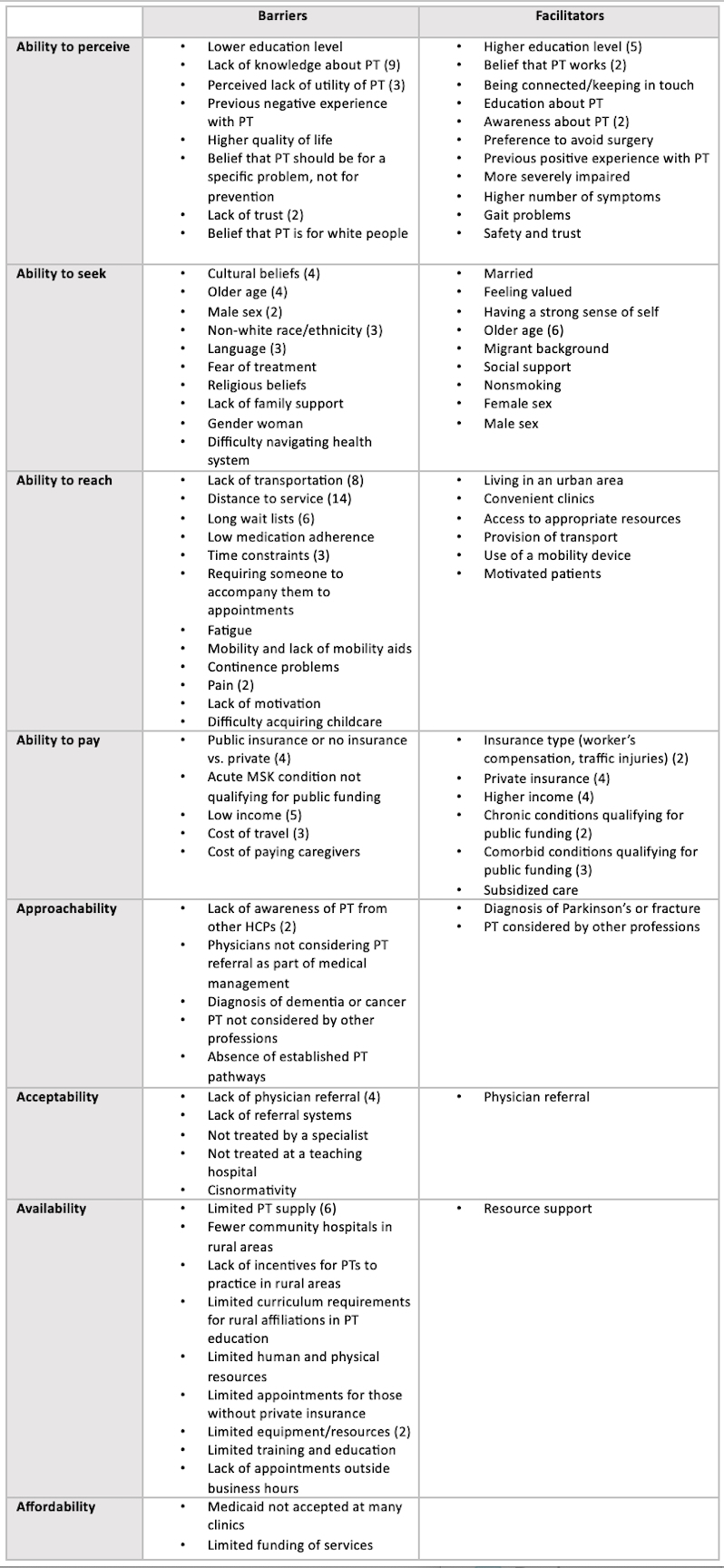Session Information
Session Type: Poster Session B
Session Time: 10:30AM-12:30PM
Background/Purpose: After experiencing an injury or the diagnosis of a chronic condition, physical therapy is often an integral part of recovery or symptom management through the use of therapeutic exercise and education. Inequities in access to physical therapy have been identified in North America and around the globe, yet the complex interplay of barriers and facilitators of access to physical therapy is not well understood. Therefore, we conducted a scoping review of the literature on barriers and facilitators of access to physical therapy.
Methods: We searched CINAHL, EMBASE (Ovid), MEDLINE (Ovid), Scopus, and Web of Science from their inception to March 12, 2024. Studies retrieved were screened for eligibility by two reviewers. Eligible studies must have identified barriers and/or facilitators of access to physical therapy and have been written in English. Study characteristics and identified barriers and facilitators of access to physical therapy were extracted from the included articles. The barriers and facilitators were then categorized using the patient-centred access to healthcare framework. This framework describes the supply-side domains of access to healthcare – approachability, acceptability, availability, and affordability – and the corresponding demand-side abilities of individuals – ability to perceive, ability to seek, ability to reach, and ability to pay, which is suitable for understanding the challenges and opportunities for individuals who needed physical therapy to access the service.
Results: Out of 5,311 articles, 48 were included. Studies were published between 2003 and 2024. Twenty-four articles (50%) were cross-sectional studies and fifteen (31%) were qualitative studies. Sixteen studies had 50 or fewer participants (33%) and fourteen had between 51-200 participants (29%). Fifteen articles (31%) focused on patients with musculoskeletal conditions, and three (6%) on patients with rheumatological conditions. Twenty-eight articles (58%) only identified barriers to accessing physical therapy. Twenty-nine studies (60%) only identified demand-side barriers and/or facilitators. Many articles identified barriers and facilitators across the demand-side abilities, however on the supply-side availability had many more barriers and facilitators identified (n = 16) than the other domains. The most frequently identified barriers on the demand-side were distance to service, out-of-pocket costs, lack of patient knowledge about physical therapy, lack of transportation, public insurance or no insurance, and long wait lists. The most frequently identified barriers on the supply-side were a lack of physician referral, limited physical therapist supply, limited funding of services, and lack of awareness of physical therapy from other healthcare providers.
Conclusion: Although many studies have been published in this area of research in the past 20 years, the barriers and facilitators of access to physical therapy that have been identified focus on individual factors influencing access, rather than at the system level. Barriers and facilitators have become repetitive and there is no indication that changes in access to physical therapy have occurred as a result of these studies.
To cite this abstract in AMA style:
Worthington H, Wang E, Bayraktar D, Therrien S, Primeau C, Whittaker J, Hoens A, Avina-Zubieta J, Xie H, Li L. Barriers and Facilitators of Access to Physical Therapy: A Scoping Review [abstract]. Arthritis Rheumatol. 2024; 76 (suppl 9). https://acrabstracts.org/abstract/barriers-and-facilitators-of-access-to-physical-therapy-a-scoping-review/. Accessed .« Back to ACR Convergence 2024
ACR Meeting Abstracts - https://acrabstracts.org/abstract/barriers-and-facilitators-of-access-to-physical-therapy-a-scoping-review/



